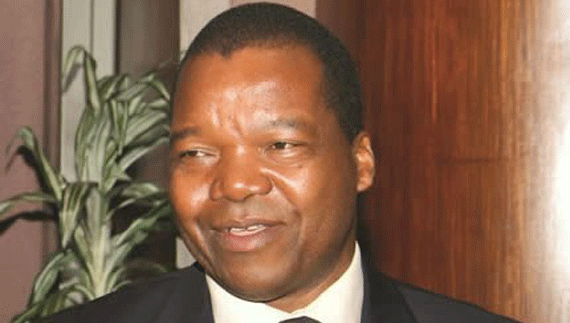
THE appointment of CBZ boss John Mangudya as the Reserve Bank of Zimbabwe (RBZ) governor was the biggest business news story in the past week.
Own Correspondent
Mangudya becomes the fifth boss at the central bank since the country gained independence in 1980. He replaces Gideon Gono, who ironically joined the biggest bank in the land from CBZ as well.
Maybe RBZ governors are now made at the largest bank in Zimbabwe in terms of assets, or maybe Gono had some influence in this latest appointment, given that at one stage Mangudya was his junior at CBZ. What spreads this speculation is that most of the key government accounts held by the RBZ moved to CBZ, as it acted as the central bank in a way since dollarisation in 2009.
Mangudya becomes the first governor who joins RBZ without a set of special notes dedicated to him compared to the past four governors as the country does not have a local currency and we currently use multi- foreign currencies since the year 2009.
He also joins the central bank when banks are sourcing their own cash for operations and don’t rely on RBZ. Desmond Krogh was the last governor from the Rhodesia Reserve Bank and his tenure ended in 1983. Bank notes at the time had his signature.
The Kombo Moyana series refers to a series of banknotes which carried Moyana’s signature after being appointed governor of the RBZ from 1983 to August 1993. Moyana had been deputy governor of the central bank at the time of his appointment. In August 1993, Leonard Tsumba replaced Moyana as governor of the RBZ.
The banknotes which carried his signature were referred to as the Leonard Tsumba series. Tsumba had worked at Finhold before joining RBZ.
- Chamisa under fire over US$120K donation
- Mavhunga puts DeMbare into Chibuku quarterfinals
- Pension funds bet on Cabora Bassa oilfields
- Councils defy govt fire tender directive
Keep Reading
Finhold was what today ZB Bank is. It incorporated Syfrets and Zimbank among other financial houses within its stable. He is currently the chairman of CABS who recently announced an impressive $18 million profit in their last financial year. Tsumba left the RBZ in 2003.
The Gideon Gono series of 2004 carried the signature of the incumbent governor and consisted of only one denomination of the first dollar ($500).
This was the last series of regular banknotes of the first dollar, as hyperinflation forced all regular bank notes series out of use, although remaining legal tender theoretically until August 21 2006.
He became popular as well for the bearers cheques that also had his signature. Mangudya leaves CBZ after it declared a profit after tax of $37 million.
He will now supervise a banking sector that largely recorded declining profits in the last financial year, despite this fact, it is an industry whose players continue posting good profits. Notable other banks posted the following profits after tax; FBC $14 million, Standard Chartered $13,2 million, MBCA $4 million, Barclays $3 million ZB bank $900 000, Kingdom bank $ 175 000 and BancABC P118 000 000.
NMB despite posting a loss of $3 million says that it is confident of turning the corner in the new financial year after addressing the troublesome non-performing loans (NPLs).
As the new governor comes into office he faces bankers that are at deadlock with employers as they are yet to get an increment since 2010. The current salary negotiations talks failed as Zibawu demanded an increment of 12,3% while Beaz was only offering 1,64%.
Zibawu is also demanding that the lowest paid banker salary per pegged at $661,39 from the current $626,77. According to reliable sources the bankers union has threatened unspecified action if the deadlock is unresolved.
Last year the union embarked on a number of targeted demonstrations that included the likes of NMB, as well as protest adverts in the leading press.
The union is said to have recently circulated salary discrepancies at one of the banks, in which an executive salary was said to be able to pay the entire staff of that particular financial institution.
Most banks have hidden behind the Beaz tag and refused to award any increment outside the Zibawu/Beaz agreement, while management has continued to receive salary hikes.
Mangudya has to monitor the banks as well as balance the profits against the salaries the sector offers to its non-managerial staff.










